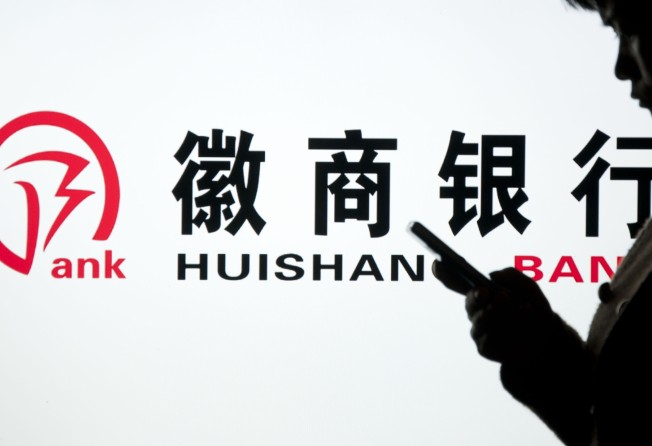Wen's gone, Wu's not. So what matters more than integrity?
Huishang Bank director opted to quit amid probe, but Agricultural Bank director is staying on despite professional misconduct ruling

Huishang Bank is nowhere near Agricultural Bank of China in terms of size, status or influence. Yet it did something last week that seems beyond its giant rival.
Independent director Wen Jinghui resigned after informing the bank that he was being investigated by the China Securities Regulatory Commission.
Huishang provided no specifics but public records show that Wen, an auditor, signed off on the financial statement of mainland listing applicant Henan Tianfon Energy-saving Panel. The commission had earlier announced a probe into Tianfon's allegedly "inflated" numbers.
Less than two weeks before Wen stepped down, Agricultural Bank announced that its independent director Anthony Wu Ting-yuk - a former auditor - had been found guilty of professional misconduct by the Hong Kong Institute of Certified Public Accountants.
Yet, Wu remains a director and chairman of the bank's risk-management committee. The bank said it was "of the view that its business, operations and financial status have not been affected" by the institute's verdict on Wu.
The listing rules say: "Every director of a listed issuer must satisfy the exchange that he has the character, experience and integrity and is able to demonstrate a standard of competence commensurate with his position as a director."
Which is the more serious integrity concern: an investigation that has yet to prove one's guilt, or being declared guilty? Yet, Wen has gone and Wu has not. So far, the regulators have been silent.
Why?
Is it because Wu's case is too old to be of any relevance? Thanks to the slowness of the self-regulatory accountants' body, Wu's case dated back to his involvement in New China Hong Kong (NCHK) almost 20 years ago.
Army-linked NCHK made Wu a director for his role in raising HK$500 million for the company's launch in 1992. Wu was then a senior partner with Ernst & Young. He resigned from the director's job after EY was appointed NCHK's auditor.
But he remained as a member of the company's executive committee, an authorised signatory to its 13 bank accounts, and had personal dealings involving considerable sums of money with the company, according to the HKICPA. Wu has maintained that professional standards back then were very different from today's.
EY gave NCHK an unqualified auditor's report for 1994 and 1995. NCHK collapsed after the 1998 financial crisis.
HKICPA launched an investigation into Wu's conflict of interest in 2009 - six years after the issue was raised in a court judgment.
None of this was disclosed in Agricultural Bank's prospectus or any official documents. Its shareholders first heard of the investigation on December 31 last year, seven days after the accountancy body announced its verdict on Wu.
Or, is it because of Wu's excellent connections? Shortly after the NCHK scandal, Wu, who had subsequently risen to the chairmanship of EY, stepped down. Most people would have faded from public life in such circumstances, but not Wu.
Backed by friends at the top, he was resurrected as a political celebrity.
In 2004, then chief executive Donald Tsang Yam-kuen appointed him chairman of the Hospital Authority. In 2005, some tycoons founded a think tank - Bauhinia Foundation Research Centre - and made Wu its chairman. In 2010, he won the chairmanship of the influential Hong Kong General Chamber of Commerce in a landslide vote. That was on the eve of the HKICPA launching an investigation against him.
In 2012, together with other tycoons, he campaigned for Henry Tang Ying-yen in the chief executive election. When Leung Chun-ying won, he extended Wu's chairmanship at the Hospital Authority for a year.
That year, Wu became a member of the Chinese People's Political Consultative Conference's national committee, joining many tycoons and political heavyweights in its ranks.
Nobody here or overseas seems to care about the scandal. He is a trustee for the Oxford University Scholarship Fund, independent director of Fidelity Funds, and an adviser to Bank of Tokyo-Mitsubishi.
Or, is it because he has lots of friends in the media? Nicknamed Fei Wu (Fat Wu) for his humour and size, he manages his media relations like business contacts, calling journalists by their first names.
For years, he has been cracking jokes and donating handsome sums at the annual ball of the Hong Kong Journalists Association, of which your columnist is a vice-chairwoman.
When the HKICPA announced its verdict on Wu on Christmas Eve, most of the media - which used to give significant coverage to his jokes, personal profile and policy statements - reported only the press release.
Or, should we explain the silence on Wu's verdict with one sad fact? That fame matters more than integrity in this city.